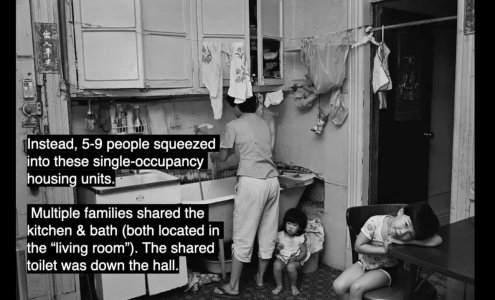On one side you can say cultural appropriation
On the flipside if you deny them it's like not accepting asians in hip-hop
firstly i would say that for me a big part of ‘cultural appropriation’ is the intention & intended audience (ex: one is taking aspects of a culture they aren’t a part of for consumption by others who also are not a part of that culture, without regard for the norms of said culture), i feel like if some one ‘appropriates’ a culture the may not ‘naturally’ be seen as but actually authentically participates for/in that culture it is maybe some grey area...but often those things are rarely as transparent as they are in this specific case; it started as, and to some extent still is, an experiment but these guys, thus far, are doing kpop in korea (seemingly with the necessary rigor) for a kpop audience...
by the very nature of it being an experiment, it is cultural appropriation and calls into question the authenticity of the whole endeavor because it can easily be perceived as cynical (even if the actual performers themselves are genuine) and in that way it seems different from your example of not accepting asian in hip-hop.
a comment in youtube that I agree with. not the mention kpop idols train for years since their teenage days (some even earlier) and they sacrifice a lot. this includes foreign k pop idols such as Japanese, Thai, Taiwanese, Chinese.
but then some white guys just come over hopping on the wave and supposedly learning korean and korean culture is considered to be super hard and that automatically makes them "hard working."
also, people saying kpop is just western pop in korean are wrong. kpop isnt just a genre, its an industry with heavy korean culture embedded into it.
the thing is, while kpop isn’t JUST western pop in korean, it definitely is a genre that seems (tho i’m not a kpop follower, i don’t think i’m out on the edge with this claim, as the lady who embarked on this ‘experiment’ noted that there is actually nothing really inherently korean about kpop) to have took its influence from western popular music and made into its own thing.
the whole thing is somewhat meta in that way and illustrates how fluid culture (and appropriation) can be, such that things that are considering part of a culture now would likely not have been 30 years ago, prolly not be 30 years from now, and be reintroduced in subsequent generations after that via another culture.
Comparing America to Korea doesn't make sense.
Korea is a homogenous country.
America actively denies representation and opportunity to Asian Americans. Koreaboos trying to be in a K-Pop band would be like Korea forcing representation and opportunity to non-Koreans.
i don’t see why comparing the 2 doesn’t make sense? the homogeneous argument (having been to seoul, while it definitely is overwhelming homogeneous it isn’t entirely, given there is a whole expat community around/in itaewon, do these folk not count?) doesn’t cut it for the simple reason you could essentially make a similar argument for the states (just replace ‘homogeneously korean’ with ‘majority white’), and i can’t really understand the analogy of forcing representation, what are you saying?
I’m going to assume they get more attention than any struggling asian rapper trying to make it in hip hop. Our frustration boils down to the fact white people can always waltz in to someone else’s culture and gain attention and success without paying their dues simply because they’re white. It happens in the culinary scene too. A white person in love with another culture becomes the ****ing gateway for many others who are unfamiliar with their culture. Everything needs to be passed through the whitewash baptism to be legitimized.
There’s a video of a white guy who lives in China who was on some singing show singing Chinese songs that gained attention there. Given that it’s a different situation and demonstrates more white worship than anything, but why should that get so much more attention than some asian American who can sing in America? The standards are different and all we ask for is minorities represent and speak for their own culture, even if it’s through broken English.
sure, people appreciate & LOVE novelty, but it does take effort to overcome/transcend that initial perception or surprise of the unexpected it really is rare that those that get attention via novelty alone without some talent...it certainly sticks out and brings about criticism/disdain when some from outside a particular culture gets the easy pass basically for the novelty of it or even the bit of legitimacy it potentially brings to aspects of that culture to get attention from those outside it, tho #themsthebreaks...
i think we get it in our heads that the position(s) occupied by ‘appropriators’ should or would be inhabited by more authentic representations if not for these cultural biases but i’ve come to realization of this being somewhat a counterfactual. it sort ignores the fact that the reasons stuff like this gets attention is exactly because it is outside the expectation, nevermind the randomness that sometimes is human preference & prerogative; we don’t live in a pure meritocracy, sometimes the ‘bs’ or the inauthentic or even the translation/watered down version gets over...
the ‘whitewashing’ is a result of the influence & power of american culture but that is kinda what is interesting about this exp experiment or experience, because this isn’t about making something more american to be palatable to the american consumer (tho i suppose superficially it could be seen that way). rather it is trying to appeal to kpop fandom by going all in on whatever things it is that makes kpop unique, and that approach is kinda different, i think anyways








































